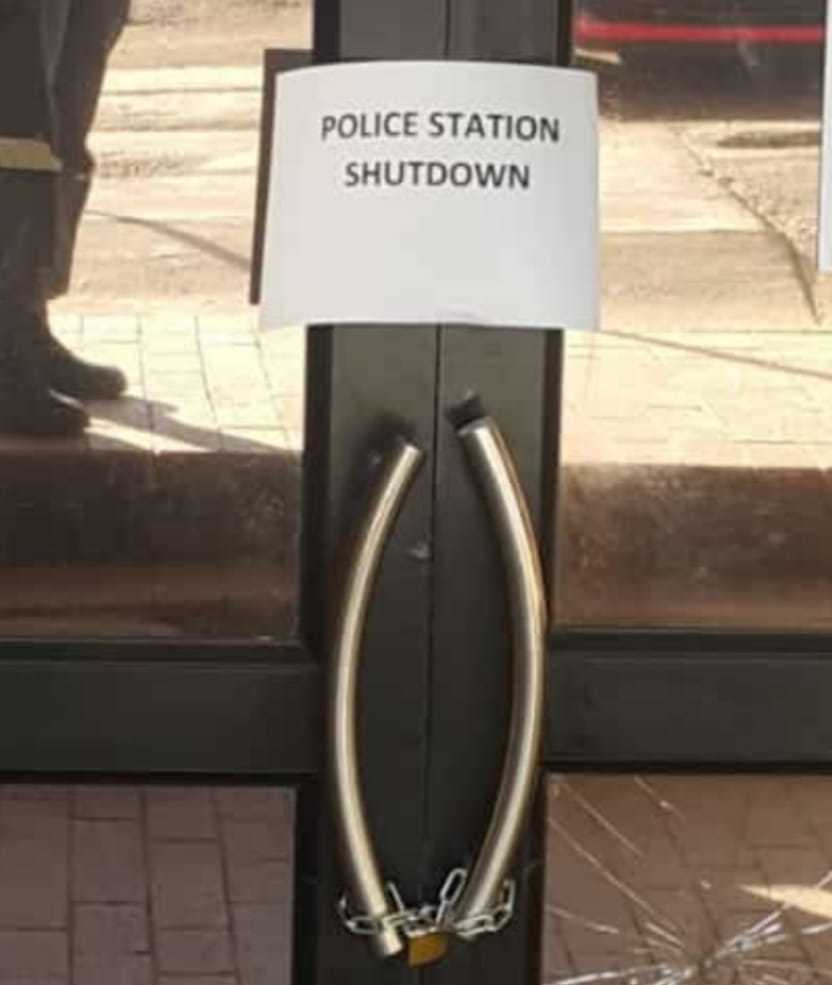Bethlehem informal residents beg water off neighbours


An estimated 1800 people call the Silahliwe settlement home and share just eight water taps and five toilets, only two of which are working. Long, snaking queues for taps and toilets lead to desperate measures, say residents.
“We normally wait in queues, but some of us we just (relieve) ourselves on the ground because we cannot wait for that long just to use the toilet,” resident Motlalepula Mahlangu told OurHealth.
Long queues for drinking water have also led to fighting between residents, according to Matlakala Mosia.
Community members also reported walking to nearby communities with piped water to beg for water. While the municipality has installed taps in the community, these have not kept pace with the growing settlement.
Dihlabeng Local Municipality Mayor Tjhetane Mofokeng said that the municipality plans to erect RDP houses for residents of the settlement with piped water. However he said that about a third of the community will be forced to leave.
“Silahliwe is an informal settlement which will be done away with and then the area will be formalized by building RDP houses and about 500 households will be moved”, Mofokeng said.
Read more stories from Health-e News’ water investigation:
- Water trucks take over as communities run dry
- Residents left to plead for water at school gates
- Dirty water deliveries for Limpopo villages
- R300 million slated to improve Madibeng Municipal water
- Water crisis looms in Kestell, Free State
- Water shortage sparks diarrhoea cases
- Municipality installs pump but community can’t foot electrical bill
- Tshwane communities survive on a trickle of water
Author
Republish this article

This work is licensed under a Creative Commons Attribution-NoDerivatives 4.0 International License.
Unless otherwise noted, you can republish our articles for free under a Creative Commons license. Here’s what you need to know:
You have to credit Health-e News. In the byline, we prefer “Author Name, Publication.” At the top of the text of your story, include a line that reads: “This story was originally published by Health-e News.” You must link the word “Health-e News” to the original URL of the story.
You must include all of the links from our story, including our newsletter sign up link.
If you use canonical metadata, please use the Health-e News URL. For more information about canonical metadata, click here.
You can’t edit our material, except to reflect relative changes in time, location and editorial style. (For example, “yesterday” can be changed to “last week”)
You have no rights to sell, license, syndicate, or otherwise represent yourself as the authorized owner of our material to any third parties. This means that you cannot actively publish or submit our work for syndication to third party platforms or apps like Apple News or Google News. Health-e News understands that publishers cannot fully control when certain third parties automatically summarise or crawl content from publishers’ own sites.
You can’t republish our material wholesale, or automatically; you need to select stories to be republished individually.
If you share republished stories on social media, we’d appreciate being tagged in your posts. You can find us on Twitter @HealthENews, Instagram @healthenews, and Facebook Health-e News Service.
You can grab HTML code for our stories easily. Click on the Creative Commons logo on our stories. You’ll find it with the other share buttons.
If you have any other questions, contact info@health-e.org.za.
Bethlehem informal residents beg water off neighbours
by Bontle Motsoeneng, Health-e News
December 15, 2014
MOST READ
FS woman waits 4 years for medical negligence pay out after ‘out of court settlement’
Prolonged power outage leaves hospitals in the dark for two days
There’s more to self-care than scented candles or massages, it’s a key public health tool
Access to clean water and stable electricity could go a long way to addressing rising food poisoning in SA
EDITOR'S PICKS
Related

#YouthDay2020: ‘My generation is about doing and being better – we aren’t doctor’s handmaidens’


